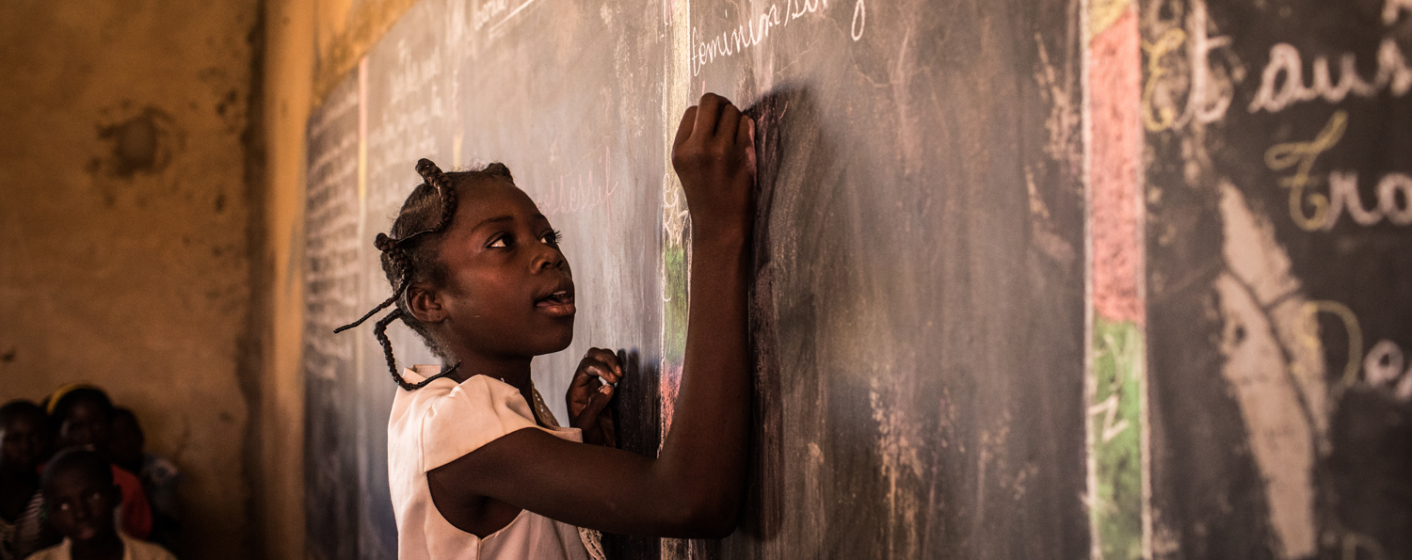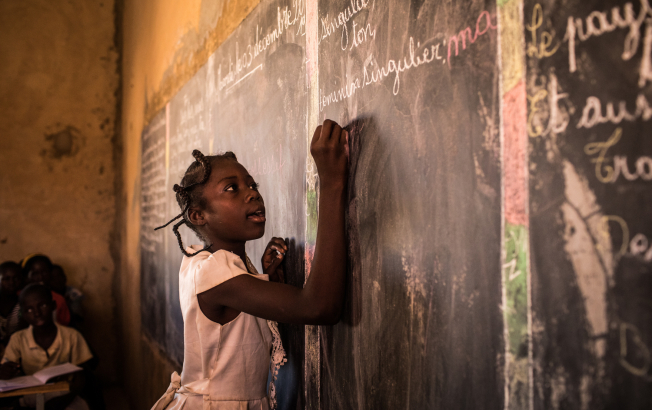Discover IIEP-UNESCO Dakar's new publication Education in Africa: 5 priorities
With eight years to go before the goal of the Education 2030 Agenda are due to be achieved, Africa continent is still facing many different challenges in the education and training sector. Which priorities should we, the Africa Office of the International Institute for Educational Planning (IIEP), as a privileged partner of ministries in charge of education and training, focus on to maximize the impact of our action?
Focusing our priorities, enhancing our impact
To mark the twentieth anniversary of IIEP UNESCO Dakar, we wanted to share our insights. Our findings are based on evidence from over 50 education sector analyses conducted since 2001 in partnership with African countries. This approach has enabled us to identify the lowest common denominator of the challenges we are facing today: the five education challenges in Africa. In line with the Sustainable Development Goals (SDGs) of the 2030 Agenda, these themes now guide our actions and our strategic direction.
Demographics. Africa’s school-age popula-tion will continue to grow massively in the years to come. By providing countries with the planning tools needed to develop and implement efficient and credible education policies, we will help them to benefit fully from the demographic dividend and contrib-ute to stimulating future economic growth.
Financing. The continent’s need on this issue is twofold. On the one hand, it is a question of making better use of available resources, notably by improving the dialogue between ministries of education and ministries of finance. On the other hand, it is essential to find new resources to ensure that funding is in line with the challenges facing the education and training sector, notably through fiscal innovations and public-private partnerships.
Inclusion. There is still a long way to go to ensure equitable access to education - regardless of individual needs and social status - and to achieve gender equality in education. Among the solutions we advocate for are support for education policies that benefit the poorest, and support for the development of gender-sensitive education sector analyses and plans.
Quality. The current learning crisis, aggravated by the consequences of the COVID-19 pandemic, threatens the future of entire generations in Africa. We are committed to helping African countries better manage the quality of education and sustainably transform educational practices.
Employment. Given the predominantly young population in Africa, technical and vocational education and training (TVET) plays a key role in fostering employability and promoting lifelong learning opportunities. Our expertise in TVET enables us to support ambitious and innovative programmes on a continental scale and to accompany vocational training reforms at the country level.
These five issues are our priorities, and we will spare no effort in addressing them. IIEP-UNESCO Dakar is determined to help African governments to plan education better, but also to accompany them in the implementation of their education plans and policies. IIEP recognises that the future of our continent depends above all on the education and training of its children and young people.


